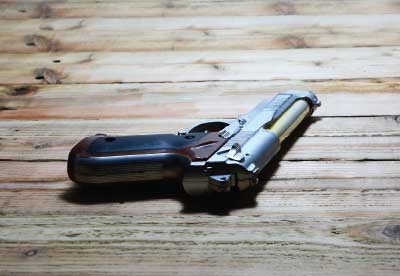Session to Separate Fact From Fiction on Gun Violence, Mental Health Link
Abstract
Marc Manseau, M.D., M.P.H., will discuss the common media misconceptions about mental illness and give messaging tips so psychiatrists can be more effective advocates for gun reform.

The spate of mass shootings in the United States has brought the topics of gun violence and mental illness into the public spotlight.
“After every mass shooting, people will come on television and say that it’s a mental health problem and that if we had better mental health services, we could prevent these tragedies,” said Marc Manseau, M.D., M.P.H., a clinical assistant professor of psychiatry at NYU Langone School of Medicine.
Some psychiatrists might view these moments as an opportunity to obtain more resources for mental health care, but Manseau believes it’s more important to correct the flawed—and stigmatizing—perception that people with mental illness are more prone to carry out violent acts.
That mischaracterization will be one of the topics that Manseau will cover at his session at this year’s IPS: The Mental Health Services Conference in Chicago: “Mental Illness and Gun Violence in the United States: Facts and Messaging Tips for Psychiatrists.”

Mark Manseau, M.D., M.P.H., hopes that his session on gun violence and mental illness will help psychiatrists provide better public messaging as well as improved dialogue with their patients about firearms.
Manseau will highlight that, contrary to popular belief, research has shown that people with mental illness are only slightly more likely than the general population to commit gun violence against others, with factors such as illness severity or comorbid substance use influencing the increased risk. The pressing gun problem associated with mental illness is not homicide, but rather suicide, which accounts for approximately two-thirds of all nonaccidental gun-related deaths.
The other major theme Manseau will tackle is gun policy. Universal background checks and assault-weapon bans are commonly proposed ways to reduce gun violence, and while Manseau believes they are necessary, they are not sufficient. Moreover, they will not effectively address the risk of suicide among people with mental illness. Extreme risk protection orders, in which officials can temporarily remove guns from people who display “red flag” suicidal behaviors, have been shown to be more effective, and Manseau will discuss these.
“Of course, another important consideration is the influence of the gun lobby,” Manseau told Psychiatric News. “It doesn’t matter what policies might work if we cannot get any laws passed or agencies like the CDC cannot do gun-related research.”
Register Now!
Advance registration rates are now in effect for IPS: The Mental Health Services Conference. Register online at psychiatry.org/IPS, where you will also find information about housing and the full scientific program.
There are many layers to go through in the gun debate, Manseau said, adding that his IPS presentation will just scratch the surface. However, he hopes attendees will learn enough to be able to provide more nuanced and contextually correct messages when discussing the intersection of mental illness and gun violence.
While proper messaging is important when advocating on behalf of people with mental illness, it is also critical when talking with patients.
“Psychiatrists should be able to discuss gun ownership with their patients, be aware of how access to firearms affects a patient’s risk for violence and suicide, and be knowledgeable on what they can do to separate patients from their guns if necessary,” he said. ■
“Mental Illness and Gun Violence in the United States: Facts and Messaging Tips for Psychiatrists” will be held Friday, October 5, 8 a.m. to 9:30 a.m.



